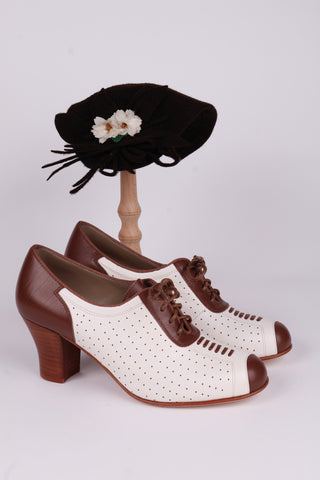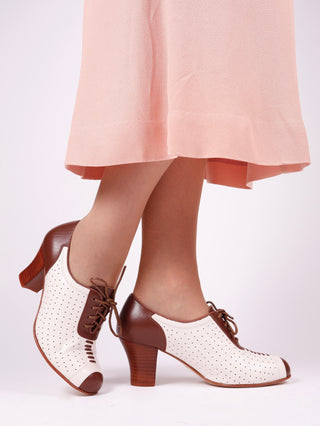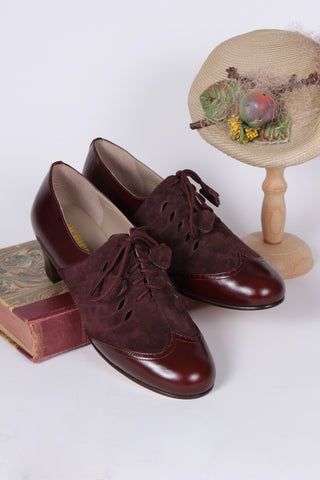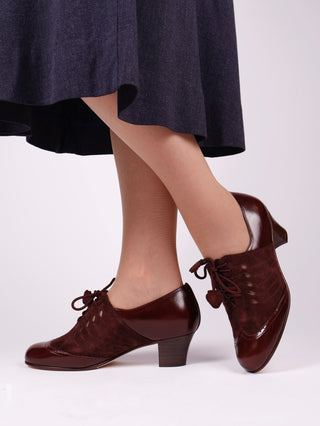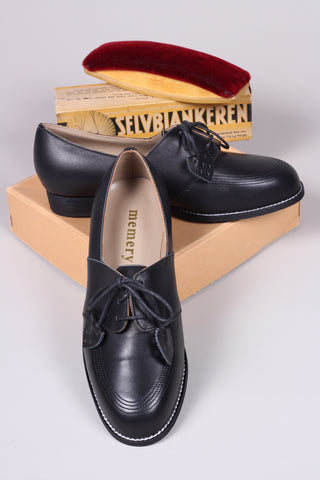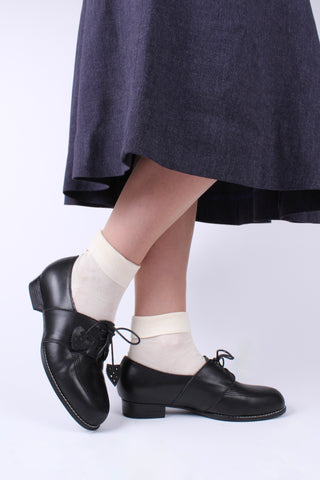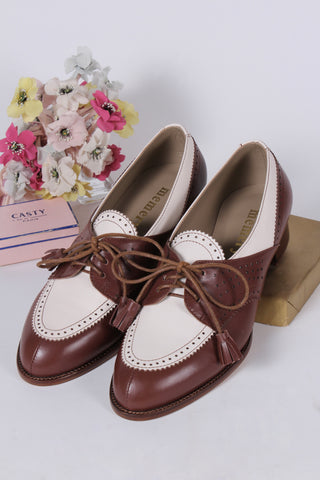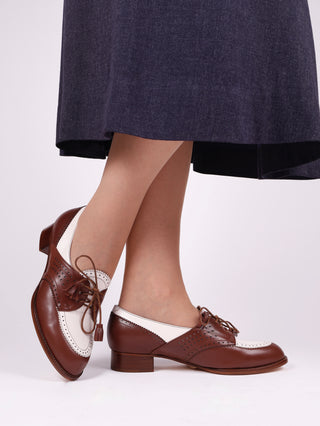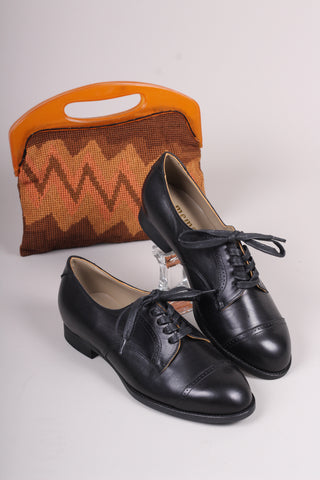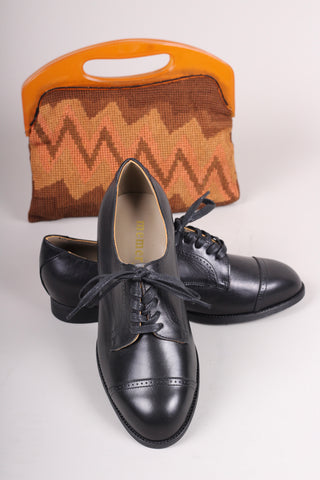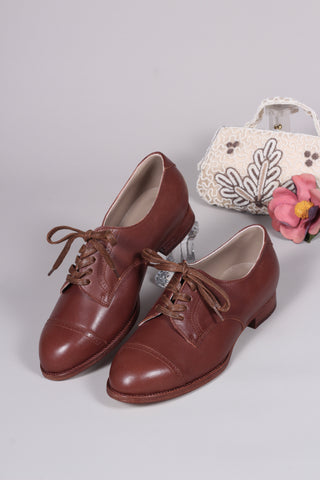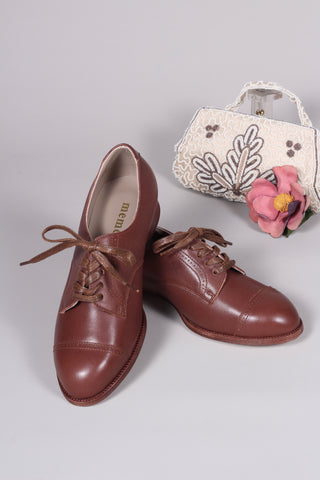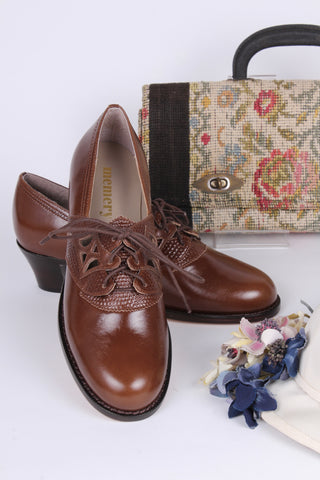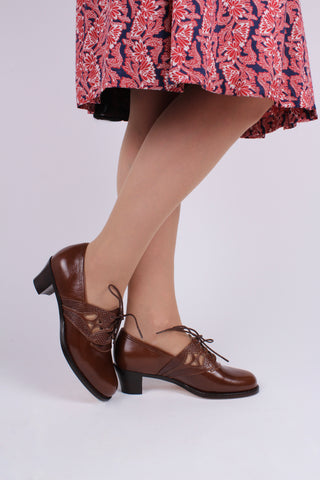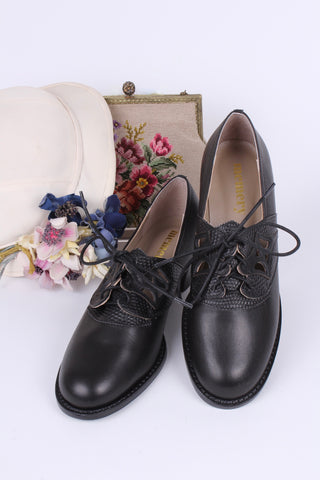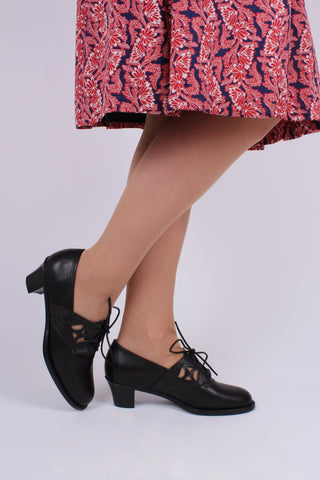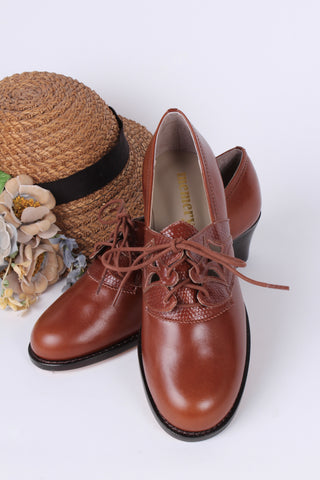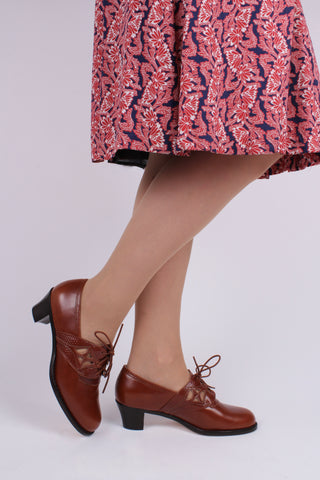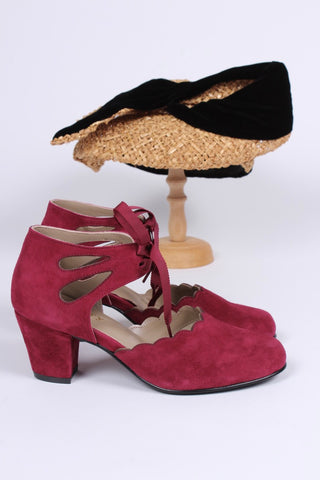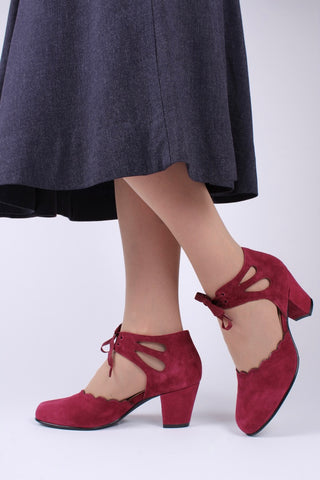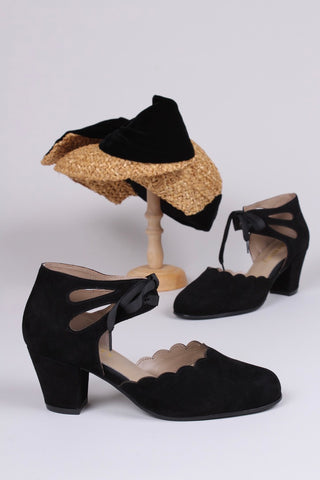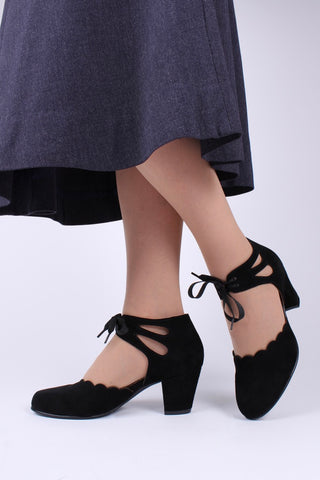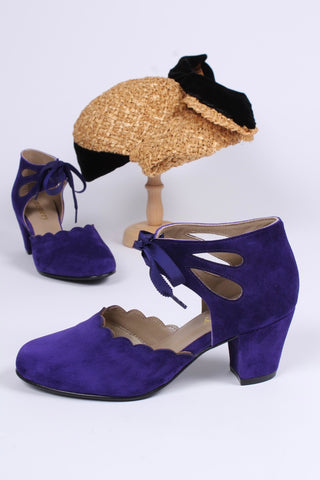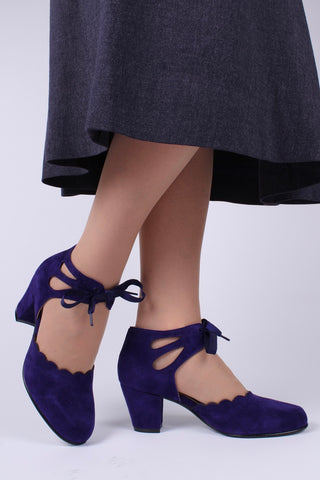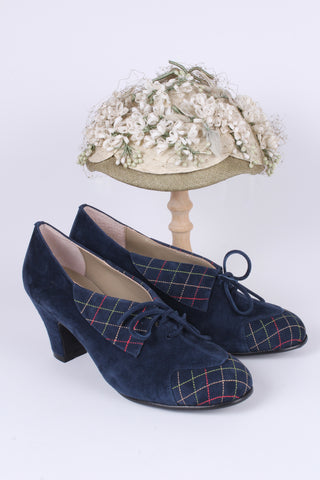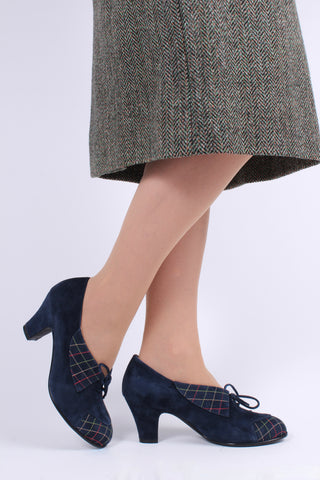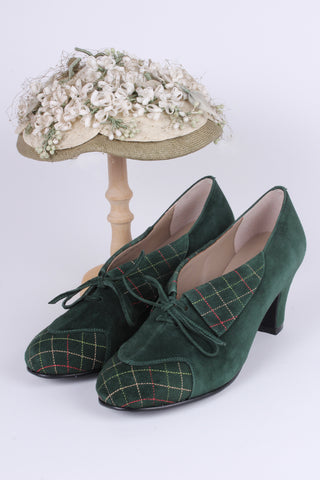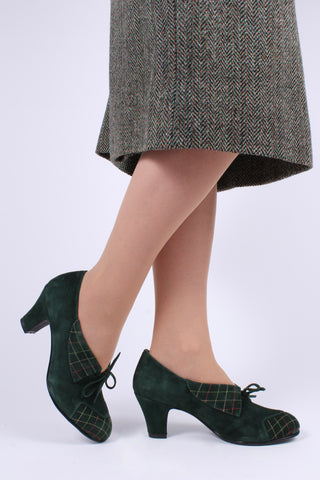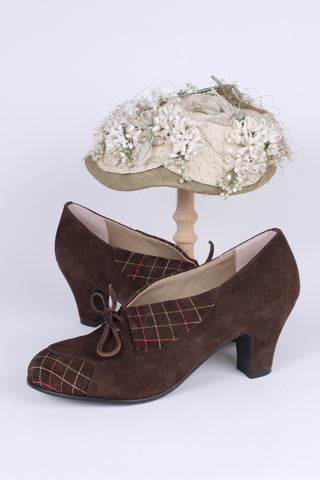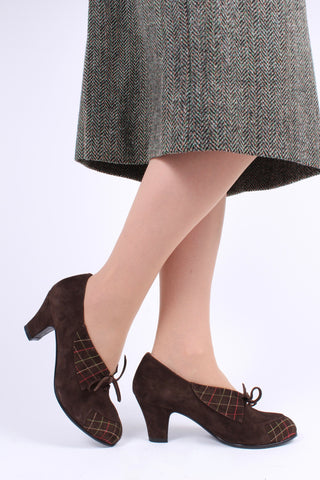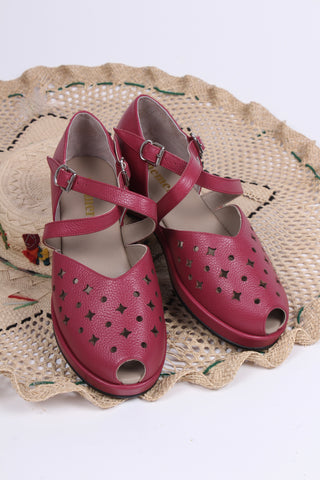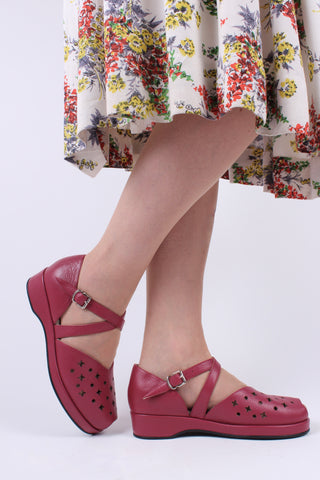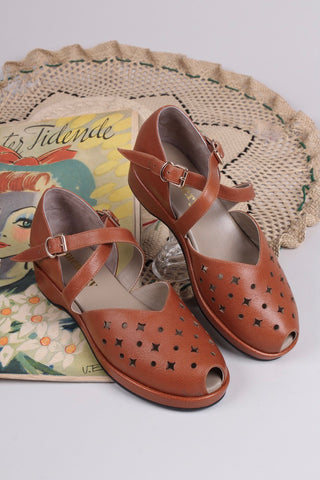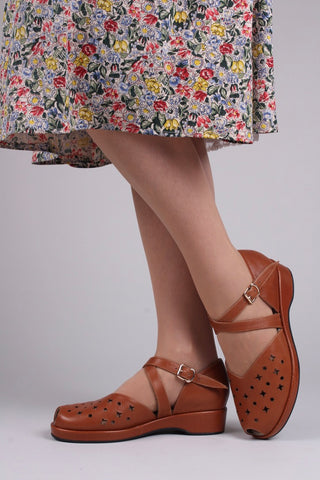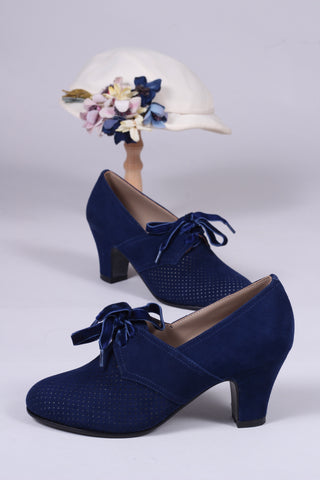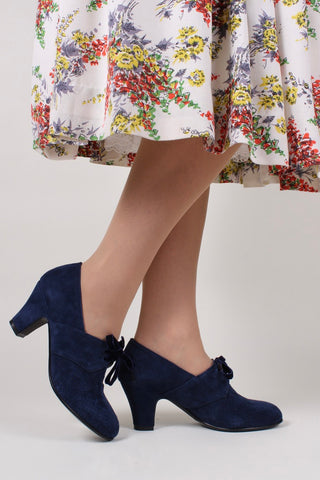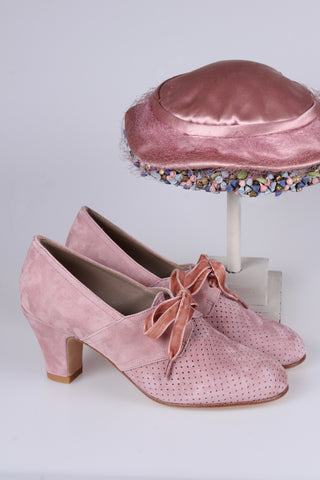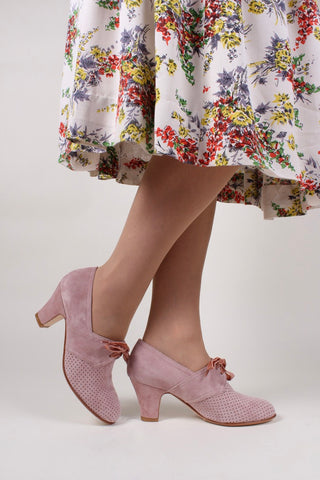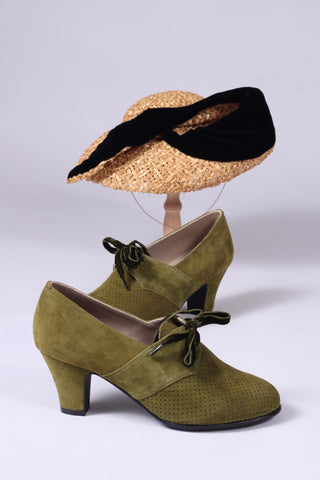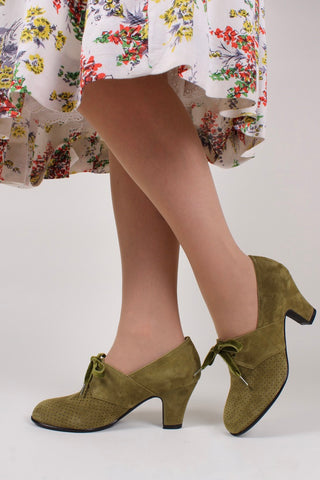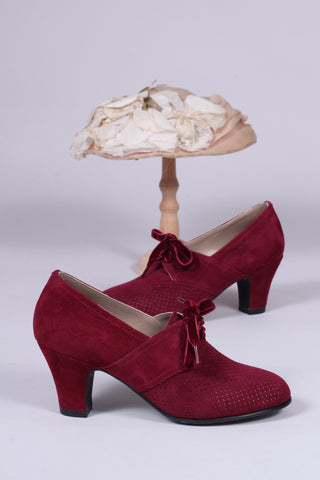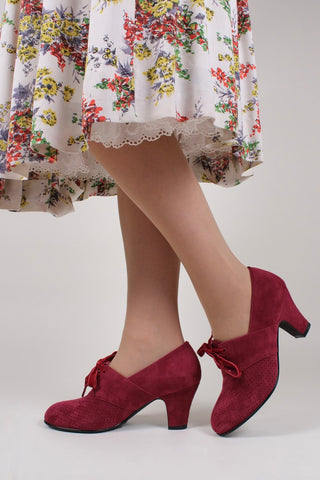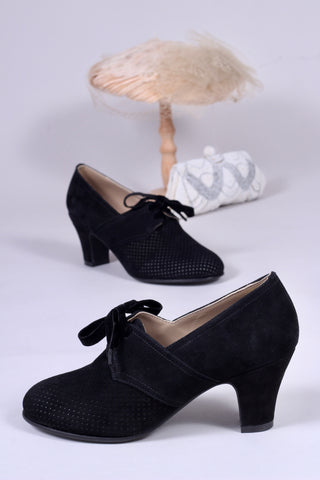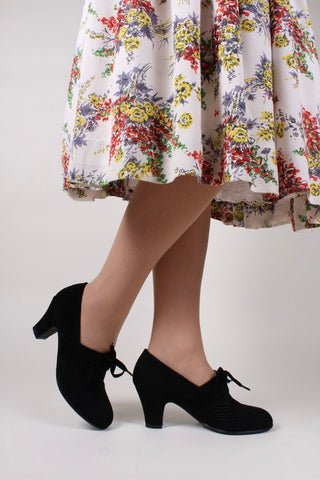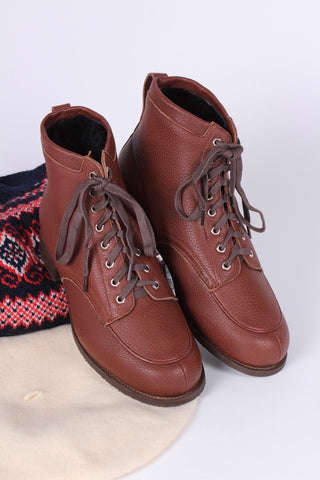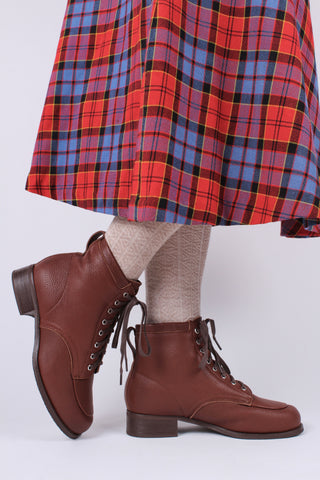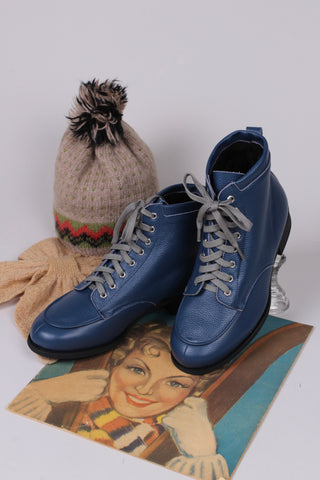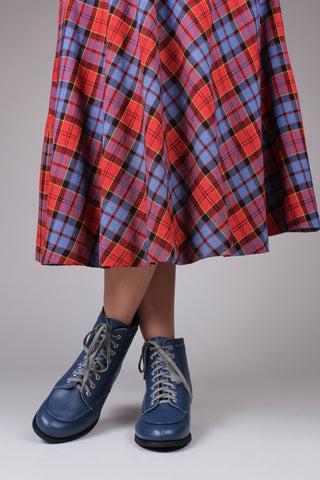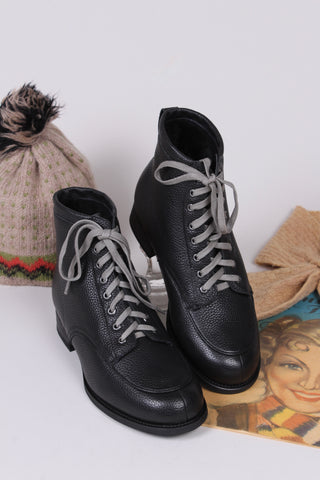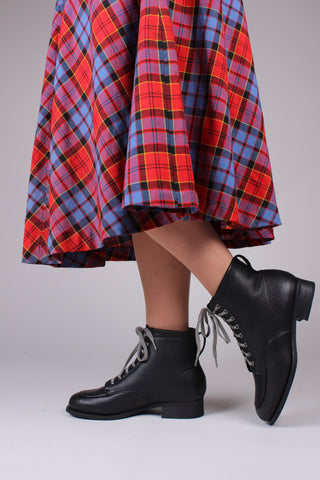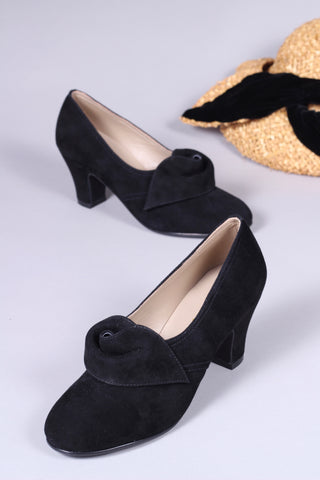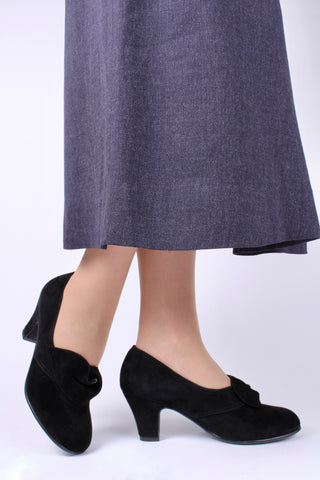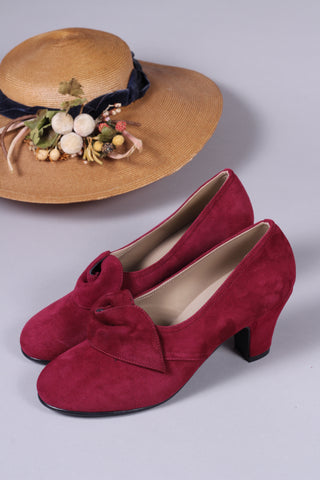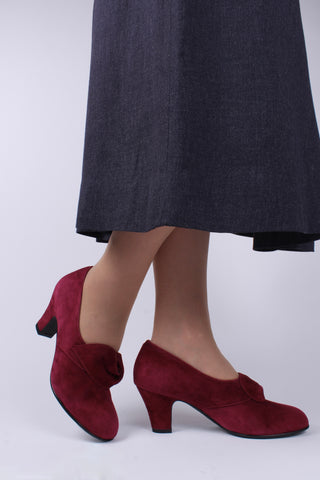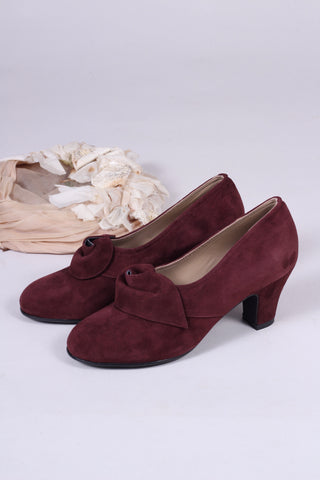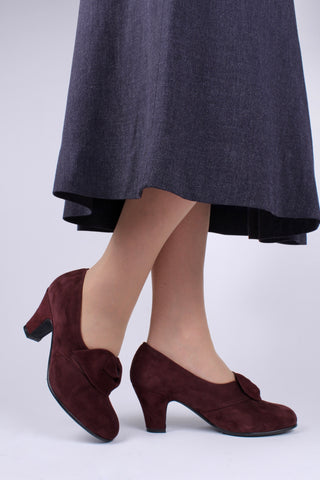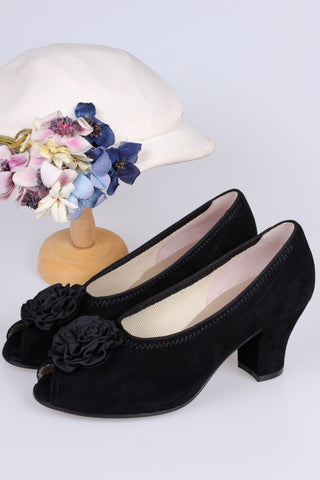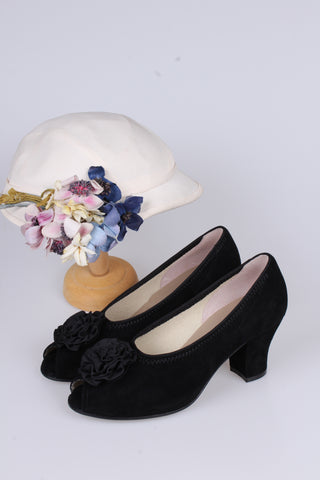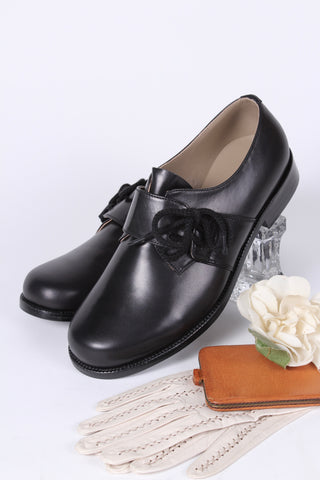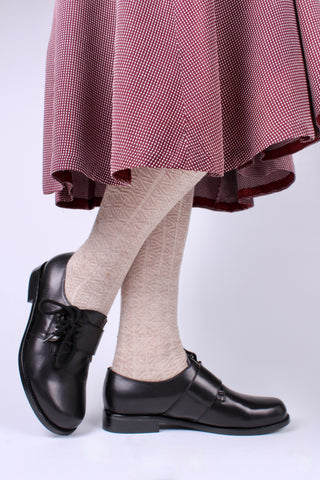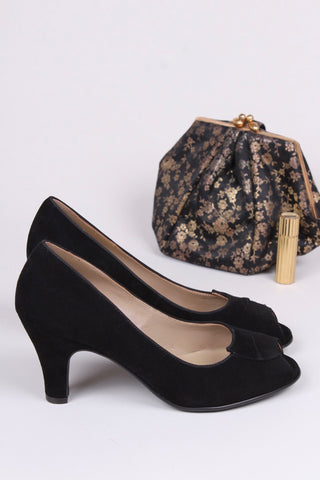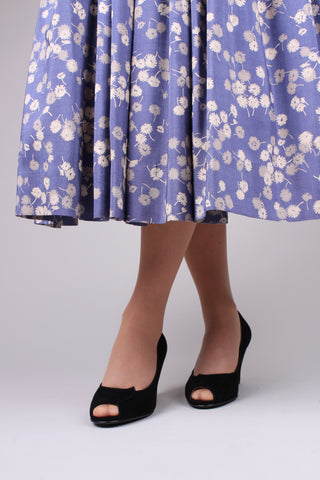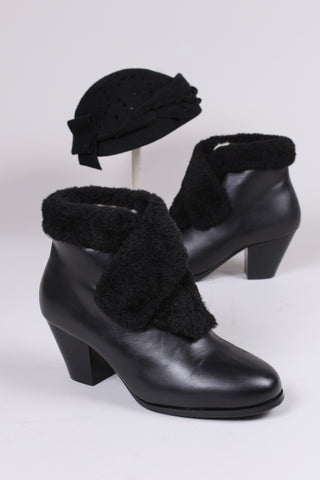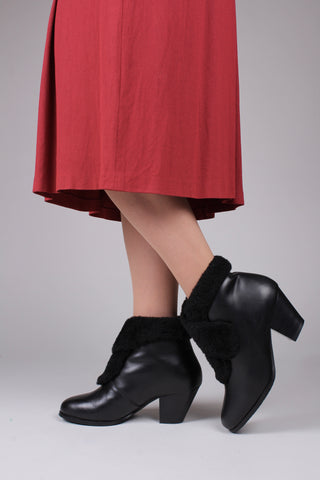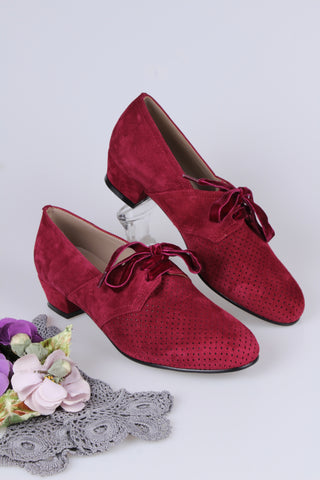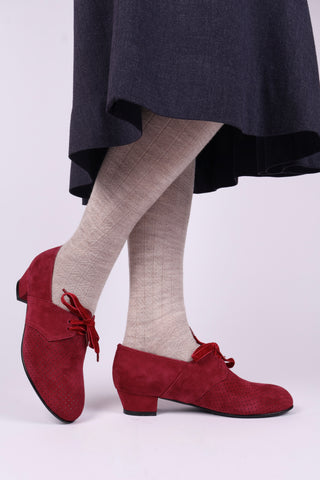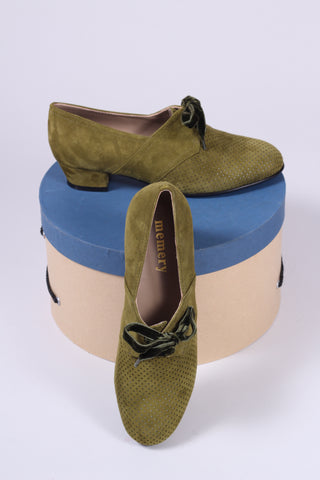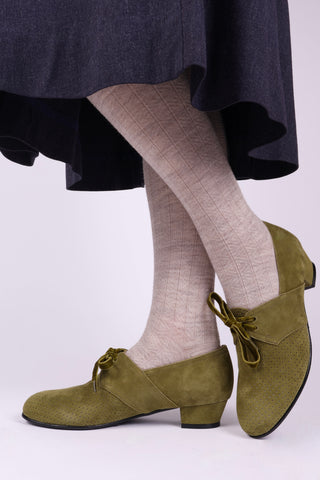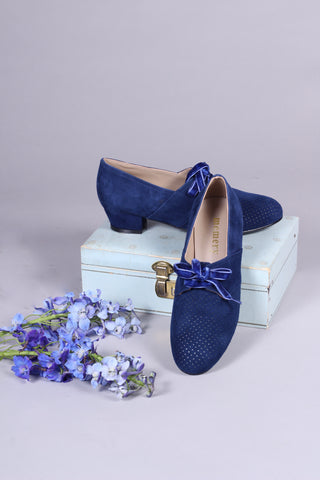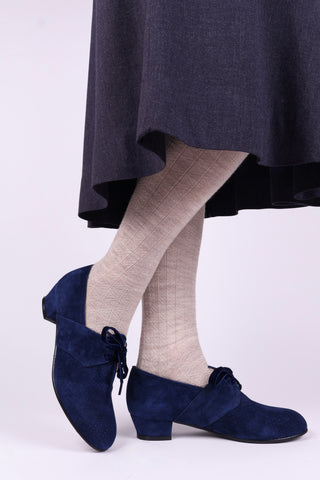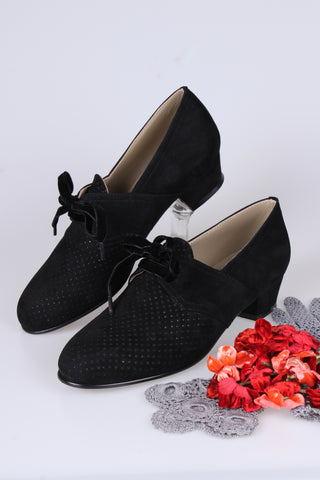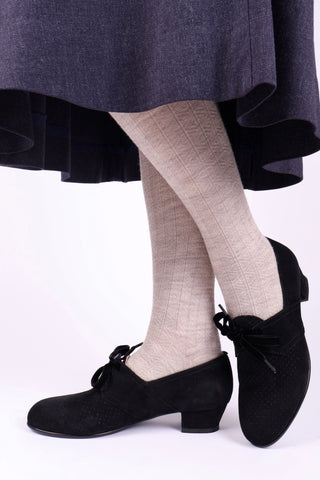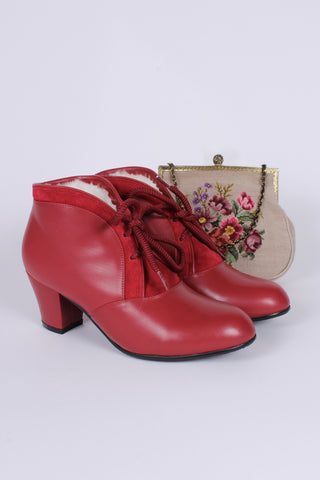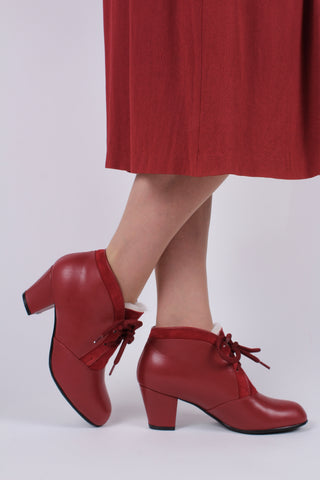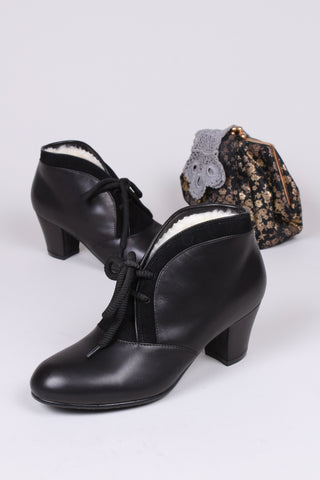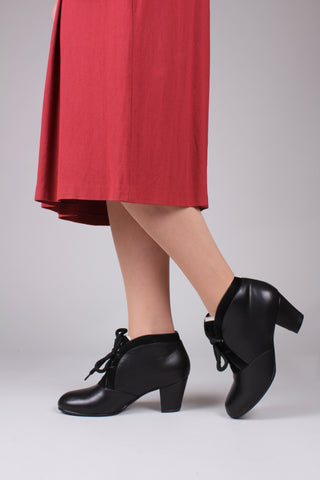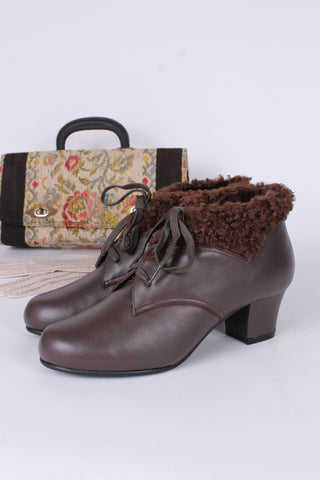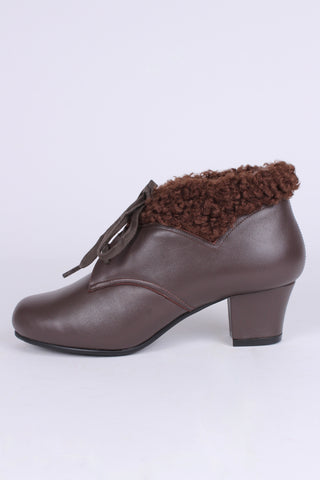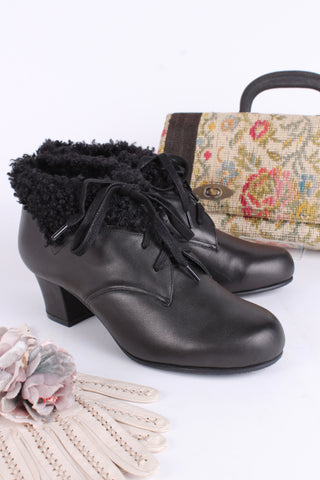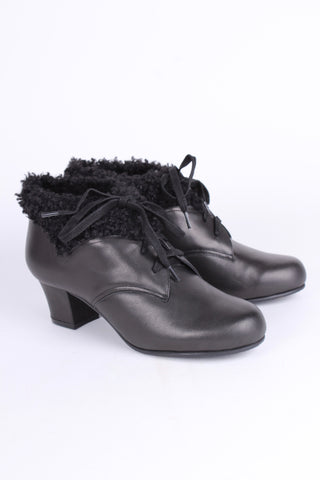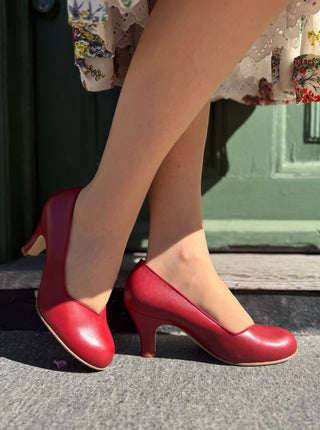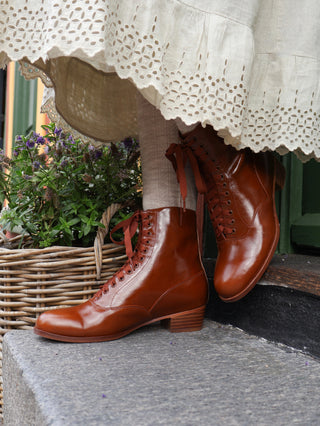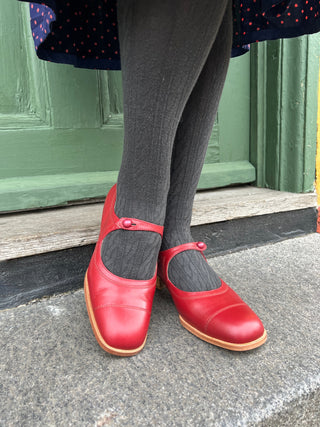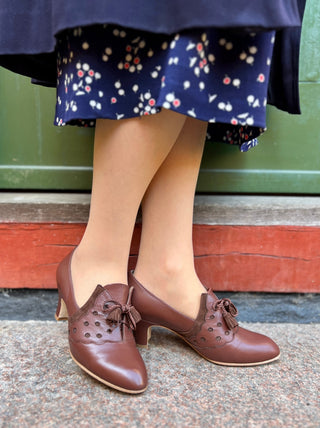1940s shoes
The decade 1940 was known for its elegance and simplicity.
Early 1940s everyday lace-up shoes - Nougat brown - Emily
£175.00
- Unit price
- /per
3 colours
Early 1940s everyday lace-up shoes - Cognac brown - Emily
£175.00
- Unit price
- /per
3 colours
1940s Suede Pumps with Colored Trim – Dark green – Edith
£155.00
- Unit price
- /per
3 colours
1940s style summer sandals / wedges - Burgundy / Raspberry - Norma
£139.00
- Unit price
- /per
2 colours
1940s pumps in suede with velvet laces - Navy Blue - Esther
£155.00
- Unit price
- /per
5 colours
1940s pumps in suede with velvet laces - Powder Rose - Esther
£155.00
- Unit price
- /per
5 colours
1940s pumps in suede with velvet laces - Burgundy red - Esther
£155.00
- Unit price
- /per
5 colours
1930s and 1940s winter snow boots with Fur lining - Brown - Rita
£189.00
- Unit price
- /per
3 colours
1930s and 1940s winter snow boots with Fur lining - Blue - Rita
£189.00
- Unit price
- /per
3 colours
1930s and 1940s winter snow boots with Fur lining - Black - Rita
£189.00
- Unit price
- /per
3 colours
40s vintage style Derby shoes in suede - Low heel - Burgundy red -Esther
£155.00
- Unit price
- /per
4 colours
40s Derby shoes in suede - Low heel - Navy Blue - Esther
£155.00
- Unit price
- /per
4 colours
40s vintage style suede Derby shoes - Low heel- black - Esther
£155.00
- Unit price
- /per
4 colours
Soft 1940s /1950s booties with wool shearling - Dark Brown - Karin
£175.00
- Unit price
- /per
2 colours
Soft 1940s /1950s style booties with fur - Black - Karin
£175.00
- Unit price
- /per
2 colours
- 1
- 2
You’re viewing 1-40 of 78 products
Vintage shoes 1940s
Are you ready to step back in time and take a closer look at the oh-so-stylish footwear of the 1940s? Let's talk about the most popular shoes of the decade, shall we?
First off, let's talk about the 1940s Wedge shoes. These babies were all the rage and for good reason. Not only did they add some height, but they also provided a bit of lift to the heel, giving your legs a longer, leaner look. Plus, the wedge heel was a practical alternative to the traditional stiletto, making them perfect for everyday wear.
Next up, we have the 1940s Shoes Flats. These were popular among women who needed a more comfortable shoe for everyday wear. These flats were usually made of leather, and they were often adorned with buckles, buttons, or even bows. They were a great alternative to heels and perfect for running errands, or for those days when you just wanted to be a little more casual.
Moving on to the 1940s Oxford shoes. These shoes were popular among both men and women. They were typically made of leather, and they had a low heel, with a closed toe and lace-up front. They were a classic and versatile style that could be worn with a variety of different outfits.
Now let's talk about the 1940s Evening Shoes. These shoes were worn for special occasions and were often made of silk or satin. They had a pointed toe, and a high heel, making them perfect for those fancy soirees. They were usually adorned with sparkling crystals, rhinestones, or even pearls, making them the perfect finishing touch to any elegant evening ensemble.
So, what were the popular trends of the 1940s? Well, during this decade, the classic and timeless look was all the rage. Simple, clean lines, and minimal adornment were key. Also, the 40s shoes were known as the "pumps" and "slingbacks"
In terms of colors, neutral shades like beige, black, and navy blue were popular in 1940. This was likely due to the rationing of materials during World War II. But, when it came to evening wear, metallic shades like silver and gold were also popular.
The decade 1940 was known for its elegance and simplicity. The war-time economy meant that materials were scarce and rationed, so designers had to be creative with what they had. But, despite the limitations, the 1940s was a decade that still managed to produce some truly beautiful and timeless styles of footwear.
So there you have it. A quick rundown of the most popular shoes of the 1940s. Whether you're a fan of wedges, flats, oxfords, or evening shoes, there's no denying that the footwear of this decade was truly something special. So why not channel your inner 1940s bombshell and add a touch of vintage style to your shoe collection today?
Fashion in 1940s
The 1940s was a decade that was heavily influenced by the Second World War and the rationing of materials. Nevertheless, women's fashion during this time was still elegant and feminine.
The most popular silhouette of the 1940s was the hourglass figure, characterized by a fitted bodice, a nipped-in waist, and a full skirt. This look was achieved through the use of corsets, girdles, and padded hips. The use of shoulder pads also became popular to create a more defined shoulder line and to give the illusion of a smaller waist.
Daytime wear during the 1940s was typically conservative, with dresses and skirts falling just below the knee. The "New Look" style, introduced by Christian Dior in 1947, featured a full, below-the-knee skirt and a fitted bodice. This look was a departure from the wartime utility clothing and was a symbol of post-war luxury.
Evening wear during the 1940s was also elegant, with dresses made of luxurious fabrics such as silk, satin, and velvet. The bias cut, a technique where the fabric is cut diagonally, was popular for evening dresses, giving them a flattering drape and flow.
Accessories were also an important part of 1940s fashion. Hats, gloves, and handbags were a must-have for any well-dressed woman. Jewelry was also popular, with long pearl necklaces and chandelier earrings being particularly fashionable.
In terms of colors, neutral shades like beige, black, and navy blue were popular during the day. While, metallic shades like silver and gold were popular for evening wear.
Overall, the 1940s was a decade that was marked by elegance and femininity, despite the limitations imposed by the war-time economy. The hourglass silhouette, the "New Look" style, and luxurious evening wear, were all popular trends that have stood the test of time.


